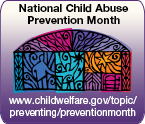4 tips when you decide to tell your kids about divorce:
1. Plan ahead. Plan what you're going to tell your kids, how and possibly even where. This isn't something that you can just talk about at any time. As much as possible be united and talk with your co-parent.
2. Tell everyone together. There should be no secrets left out from other family members. Leaving one child out could possibly make them seem like it was their fault in some way. It can also lead to dividing the family even further. Answer all questions that they might ask and be curious about. This is a big change for kids.
3. Let kids react in their own way. Some kids might be upset immediately, some might even be happy that the fighting is over, or other kids might not have a reaction at all. This kind of information takes time to process and they will process it when they are ready. If they are angry, let them be angry and express their feelings rather than having to hold it in.
4. Make sure your kids know that it is not their fault. Tell them the truth. You will have to adapt language to appropriate developmental age, but keep it simple and honest. Again, remind them that parents don't get divorced from kids, only from each other.
4 tips for handling divorce and making the smoothest transition possible:
1. Afterwards be as much of a team as possible as parents. Take co-parenting classes and be as cooperative as you possibly can for your children. Fighting in front of them can have lasting consequences and involving them in any of these issues and making them side with one parent over another is completely inappropriate. Your kids want you both in their life as much as possible. They don't want to be messengers for the other parent and they certainly don't want to hear negative things about the other parent. This might be very difficult but will be completely worth it in the long run to decrease other negative effects of divorce on kids.
2. Create a regular routine immediately so your children can start to adjust to the changes.
3. When time has passed monitor your children. Listen to them with their thoughts and questions. Look for signs of depression afterwards such as behavioral issues and outbursts, grades falling, isolating, etc. Take them to a licensed therapist who can help them through this process.
4. Not only with your children, but take care of yourself. Kids are incredibly sensitive to their parents feelings and mental health. Even the youngest children are aware that something is wrong. Get help yourself as well! Find support of friends, take part in regular self-care to boost your mood and mental health or possibly see a licensed therapist as well.
Resources:
Mom and Dad Have Something to Tell You
Children and Divorce
9 Things to Consider
How Can Divorce Affect My Kids?
Helping Kids Through Divorce
Age by Age Guide to Children and Divorce






 RSS Feed
RSS Feed
